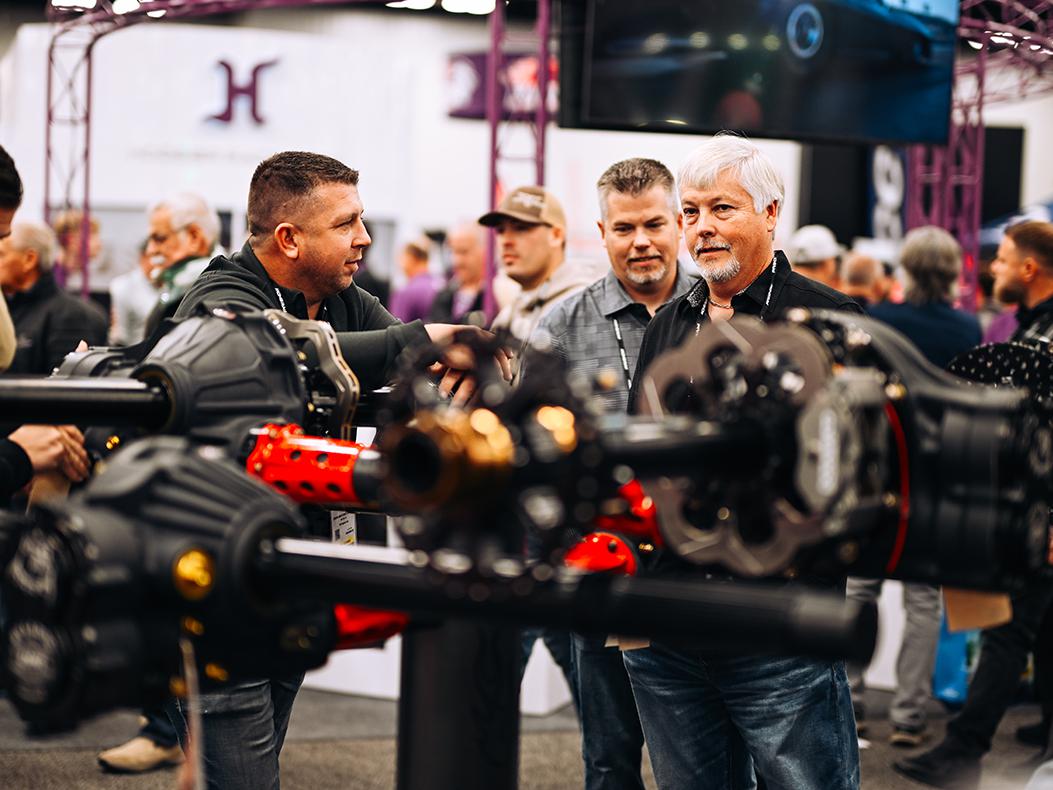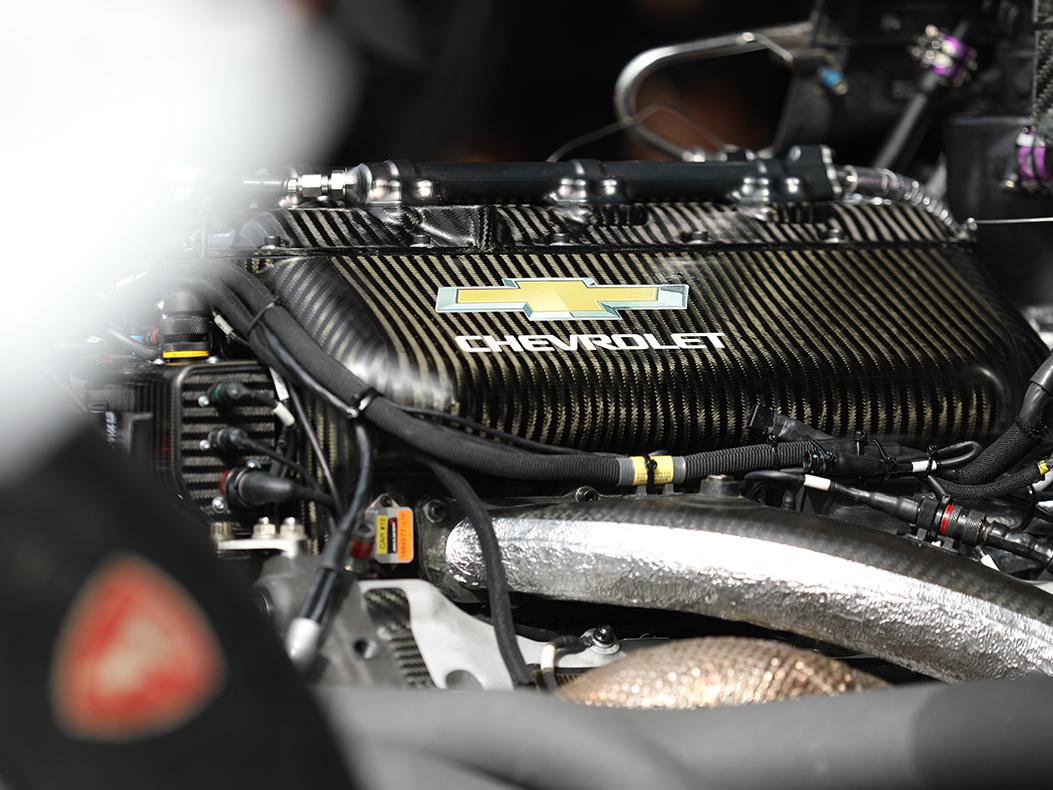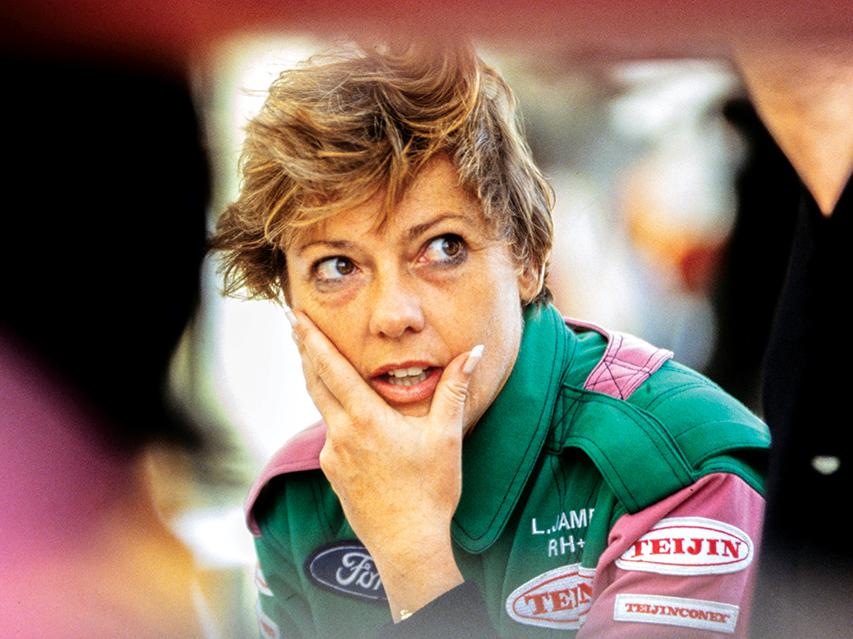Business Profile: GMT Racing

Led by veteran racer JR Mitchell, this Connecticut Operation provides storage, hauling, repairs, and more for some of the finest race cars dating from before the second World War to more recent Le Mans Prototypes.
Vintage race cars are a thrill like no other. Nobody will argue with that. But for the owners of such machines, the challenges of transporting the car to the track, getting it ready to run, and keeping it going can dampen much of the unfettered joy that comes from lapping a charismatic machine from days gone by.
To keep things fast, fun, and fresh, many racers on the vintage circuit depend on support companies to handle those chores and open up time for more pleasurable aspects of racing. Among those businesses, GMT Racing has established a strong reputation for serving customers well and getting cars to the grid—even going so far as custom fabricating pieces to replace unobtainable vintage parts when necessary.
GMT was founded by veteran racer JR Mitchell. He began his motorsports career as a mechanic and truck driver with the famed Bob Sharp team in the late 1970s. It was a lofty place to launch a racing career, but it came with a steep learning curve. “The drivers at the time were Paul Newman and Sam Posey,” recounted Mitchell. “You had to hit the ground running with that bunch.”
After a stint with racer Bob Akin, Mitchell formed GMT Racing in 1995. The company began by servicing English single-seaters and sports cars such as Lotus, Brabham, Chevron, and Merlin. But as the business grew, so did the sophistication of its customers.
Now GMT routinely tackles an enormous range of cars. “We’ve got cars that have magnetos, and we’ve got cars that have three computers,” said Mitchell. “The cars range from prewar things to recent Le Mans Prototypes.” Equally diverse is the condition in which cars arrive at GMT, he noted. “We’ve brought cars in that were turnkey, and we’ve gotten cars in boxes, built them up, and then taken them around and supported them. It depends on what the customer wants to run, and what we have to do to get the car for them and get it up to snuff.”
New England Know-How
Set amid the picturesque vistas of rural southwest Connecticut, GMT Racing is about an hour drive from Lime Rock Park, the shop’s home track. “We’ll be there about five times this year, not counting test days and other stuff,” said Mitchell. The company’s base of operations is a contemporary one-story gray-brick building, tucked away amid the trees and curves that spider across the centuries-old town of Newtown.
Although GMT doesn’t come across as a business of epic scale, it takes plenty of room to support approximately 40 cars at any given time for customers. The shop’s total storage space is around 25,000 square feet. It’s a significant investment, but storage is a vital part of serving his clientele. “The vast majority of cars we support have never been to the owner’s home,” said Mitchell. “The car comes to us, we go through it, take it to the track, bring it back, clean it up, and then get it ready to go out the next time.”

Once the GMT crew arrives at the track with a car, the job of support entails whatever is necessary to keep the car running and the owner happy. No two events are exactly the same. “A good weekend is when you put gas in the car and check the air in the tires,” said Mitchell. “We try not to change motors at the track because more often than not, that ends in tears.
“Typically, we do gears, maybe some minor damage repair, a little bit of bodywork here and there,” added Mitchell. “But we usually don’t do anything too extensive, because if you have an actual crash, the organization will probably send you home. Especially if you’re at fault. They don’t want you out there without having your head screwed on straight.”
The Human Touch
With the vintage racing circuit active every month of the year but January, GMT is almost always on the move. A typical year can encompass about three dozen races, plus test sessions. It keeps the company’s staff extremely busy, but the crew gets it all done with hard work and plenty of multitasking.
“The whole shop is only a dozen people,” said Mitchell. “So, you can’t take an army with you to fix everything. We have some fairly simple cars where we can have one mechanic run them. And then we have other cars that we have to have a crew of two or three on them because it takes two people just to get the bodywork off. You have to be able to do a little bit of everything.”
Cars like the Peugeot 908 owned by a GMT client pose unique challenges for the crew. “I don’t know anybody else in the country right now that’s running a diesel Le Mans Prototype like the 908,” said Mitchell. “It’s doing really well, and the owner has been very successful with the car. But the original team would have 100 guys at the track. We bring three.”
To meet the demands of supporting such sophisticated cars, GMT frequently supplements its staff with uniquely qualified experts and specialists. “We have three or four people that are what we call ‘fly-in,’” said Mitchell. “They’re highly talented people that didn’t really want to do this full-time anymore. They come in as needed to work. For example, on our Audi R8 crew we had a guy who won Le Mans three years in a row.”

Family also plays a key role in GMT’s operations, with Mitchell’s wife, Eileen, handling the company’s finances and their son, Josh, working as a mechanic.
Mitchell is quick to point to the professionalism and teamwork of his staff as the biggest key to the company’s success. “We couldn’t do it without the guys who work here,” he said. “We’re only as good as they are to begin with. I’ve been blessed that way. The guys that have come in have stayed. It’s been a very stable workforce over the years. And the fact that they’ll stay and do the job, and they’re willing to learn and move forward with the rest of this stuff has definitely been a blessing.”
So what’s his secret for attracting and retaining such great employees? Mitchell chuckled and responded, “Beats me. I wish I knew. Must be what my wife is doing. I’m not the easiest person to get along with. I don’t know why they put up with me sometimes, but they have.”
Tools of the Trade
Crisscrossing the country to field dozens of race cars week after week requires some hefty transportation. For that, GMT depends on a combination of rigs from various sources. “We have three customers who own their own semis that we put the cars in when we’re done, and we have three of our own here,” explained Mitchell. “Cars go in the truck with whatever support equipment we feel we need. And that runs the gamut—bodywork, wheels, tires, ignition, lubricants, spare bits and pieces, you name it. We bring as much as we can, so we can try and be self-sufficient. We don’t have a truck with a machine shop on it, but we do bring some welding and fabricating equipment.”
Back at the shop, GMT has all the necessary equipment to handle most repairs, but Mitchell said there are still a few things they typically farm out, including bodywork, paint, and carbon-fiber repairs, “because there are better people than us to do it.” This is especially crucial with carbon-fiber work, which forms the structural basis for many of the cars GMT handles. “We have nearly a dozen cars here with carbon tubs, and a lot of times wings and other parts are all carbon fiber,” said Mitchell. “If those cars need structural repair, we know enough to send that off to a specialist. There are four or five guys we use to do repairs on the tub itself or the bodywork.”

To that end, Mitchell knows the value of good subcontractors, and he nurtures those relationships carefully. He explained, “When we find somebody good, we try to stick with them and make sure they’re around for us when we have a need by helping them when they need it.”
As a shop that caters to vintage race cars, one of the biggest challenges can be obtaining parts. Many of the cars GMT supports were built in very small quantities to begin with. The problem becomes even more daunting as those cars approach a century old. “We had a pre-war Alfa in here, and it used a very special differential with twin ring gears in it,” said Mitchell. “It was having lots of troubles. But you can’t just pick the phone up and get parts for it. And the parts that we could get for it didn’t seem to be done the way that I thought they should be. So we made drawings and had people make some carriers and gear sets for us. That improved the car a lot over what it was when it first rolled in.”
While sourcing parts for a race car built before World War II can be a challenge, it can be just as difficult to find spares for relatively recent machines. “You would think that with more modern cars, it would be easier to get parts, but that hasn’t been the case,” explained Mitchell. “Most of the earlier English race cars used parts adapted from street cars. That’s not so much the case anymore. Quite often we’ll have to go out and get a print done and get parts CNC’d or water-jetted and then get them heat-treated. It gets fairly involved.”

But reverse engineering and fabricating parts isn’t just to keep clients’ cars running. For GMT, it’s an important sideline for the business, through recently acquired company subsidiary Lee Chapman Racing. “It’s been a very good deal for everybody,” said Mitchell. “Racers can get parts when they need them, and it helps us through the slack times.” The Lee Chapman Racing division offers a wide array of parts for vintage race cars, including Lotus, Elva, Lola, Brabham, Chevron, and March. Many of these parts are custom fabricated for GMT by specialized subcontractors.
People-Pleasing Business Strategy
To bring in new clients, Mitchell relies most on just plain making his current customers happy. And that results in GMT’s best form of marketing—word of mouth. That said, he augments that with small ads in several vintage and historic racing magazines. He also maintains a limited online presence. “We have a website and we’re on Facebook and this and that. But we don’t spend a lot of time on it. Probably should but we don’t.”
Instead, Mitchell feels the best way to reach potential customers is just by doing what he does best: going to tracks, supporting race cars, and selling parts. “In a normal year, we’ll do 30 race weekends,” he said. “So we’re out there. People know to look for us. And the parts business has helped bring some people in. The rest of it truly is word of mouth.”

Beyond just providing a steady flow of work for the shop, getting customers by recommendation has also kept things varied and fresh for the GMT crew. “I honestly haven’t gone off trying to recruit somebody with a car that looks particularly neat,” said Mitchell. “When a customer wants to bring something in, we’ll run it. We fell into the Audi R8 we run because the gentleman we were already working with just decided he’d like to have an Audi R8. He had the means to do it and here we are. We have a little bit of everything, from Riley & Scott cars down to a couple of specials that were built out of Crosley motors. It makes it interesting.”
 MEMBERSHIP LOGIN
MEMBERSHIP LOGIN JOIN PRI
JOIN PRI


